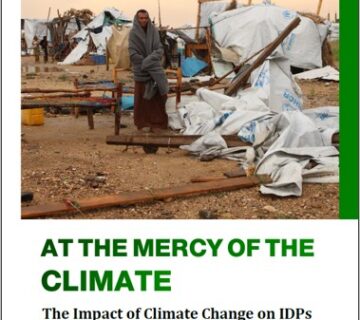Summary
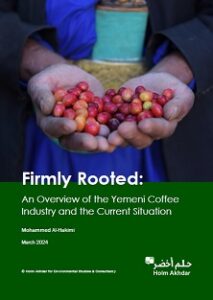
Yemeni coffee remains a secret and needs to be rediscovered. With the scarcity of genetic research and genetic maps of coffee in Yemen, many varieties of Yemeni coffee haven’t been thoroughly studied yet. and not all coffee varieties grown across the country have been genetically preserved. Some previous research and studies have proven that Yemen possesses the complete set of germplasm of coffee varieties cultivated in the world.
A study prepared by Holm Akhdar for Environmental Studies and Consultancy on Yemeni coffee industry, entitled “Firmly Rooted: An Overview of the Yemeni Coffee Industry and the Current Situation,” concluded that the agricultural area and production quantity of the Yemeni coffee were relatively stable during the period (2014-2020). Yemeni coffee has proven over the past period that it can adapt to climate change and other environmental threats. This means that the future of Yemeni coffee will be promising in terms of sustainability in the coming decades, if official and societal attention is concerted to develop this industry and address its current challenges, based on a strategic vision and effective interventions.
Climate Change Will Not Be Harmful to Yemeni Coffee
The risk of coffee species extinction in many regions of the world in the coming decades is increasing, according to recent research that predicts a global decline in coffee production by half in regions including countries in Africa and Southeast Asia. Therefore, devoting local attention to Yemeni coffee represents a real opportunity for Yemen, since the expected threat of coffee tree extinction in several countries does not include Yemen. The negative threats that climate change will impose on the global coffee sector until 2080, may give Yemen a chance to reintroduce its coffee to the world. Yemen may once again bring Yemeni coffee to the forefront, as Yemen is the home country of the Arabian coffee genetics worldwide.
Based on a number of scientific data shown in previous studies, and the analysis of agricultural data for Yemeni coffee during the past six years, the conclusion drawn from this study is that climate change in Yemen will not be detrimental to coffee cultivation and production in the future. On the contrary, it may lead to an increase in Yemeni coffee production. The potential impacts of climate change on agricultural production in general, and coffee production in particular, will not only depend on the climate itself, but also on the internal dynamics of agricultural systems, including their ability to adapt to climate change.
The study, conducted by Holm Akhdar for Environmental Studies, projected that future climate changes in Yemen may provide suitable conditions for coffee cultivation in many areas of the country. This is due to the anticipated overall increase in rainfall in Yemen in the coming decades, which may lead in the long run to “improved crop productivity and the expansion of arable land in Yemen.”
What may further enhance this is the advantage of Yemeni coffee varieties – specifically those characterized by their resistance to drought by a ratio (medium – high) – and their ability to adapt to their environment at high altitudes, which has been proven over the past decades. In addition, the periods of seasonal rainfalls in Yemen correspond to the periods of coffee cultivation. In addition to the genetic diversity of the Yemeni coffee, and its ability to resist some pests.
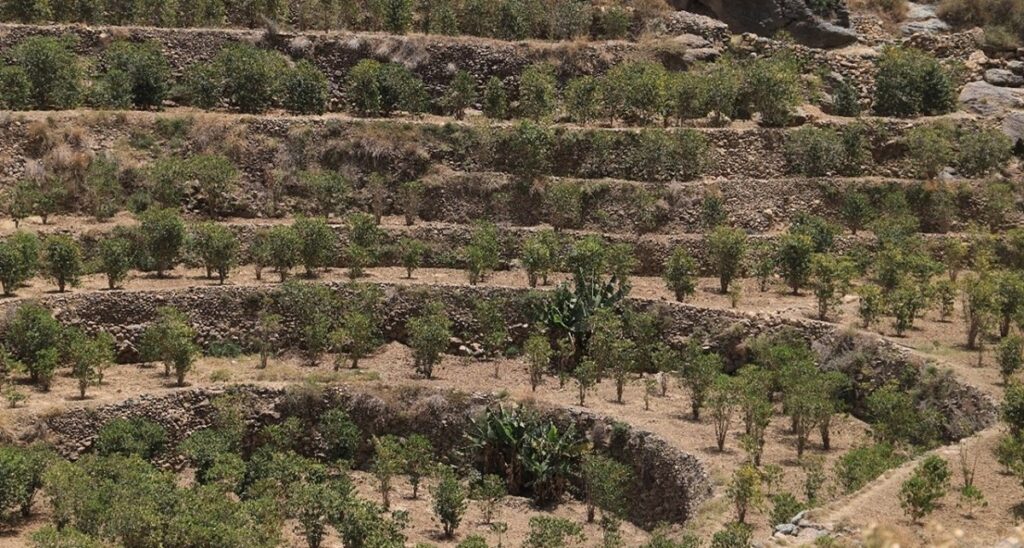
2018: The Most Declining Year in Area and Production
In its analysis of the current situation of coffee cultivation and production during the period (2014-2020), which is a very important period, this study showed that Yemeni coffee accounted for half of the area of cash crops and topped the list of cash crops in production. However, during the period (2014-2020), cash crops in Yemen lost a very large part of its productive land, amounting to about 11,508 hectares. This significant decline is due to the combination of many factors, mainly the escalation of war and armed conflicts, specifically in 2018, in which the Yemeni agricultural sector witnessed a significant decrease and decline in agricultural area and production.
Furthermore, a number of reasons have contributed to aggravating the situation in Yemen, including: the restrictions imposed on transporting foreign trade, exporting Yemeni agricultural commodities, fuel shortage crises, deteriorated infrastructure, droughts, and desert locust, as various agricultural production areas were swept by swarms of desert locust, and many agricultural crops were damaged by locusts during 2016 and 2018.
The study showed that cash crops losses in Yemen were mainly concentrated in the loss of a large area of the cotton crop. The area of cotton cultivation in Yemen decreased from 14,375 hectares in 2014 to about 4,053 hectares in 2020. With a loss of 10,322 hectares of cotton land during the period (2014-2020). This significant decline is attributed to the drought and the destruction of many water wells on which cotton lands depend. A huge area of cotton-producing land in Hodeidah governorate, Yemen’s largest cotton producer, was damaged due to conflicts along the western coast in 2018.
The study also revealed that the amount of Yemeni coffee production decreased to its lowest level in 2018, as a result of political and economic factors and intertwined socio-environmental conditions, including: A number of farmers and owners of small agricultural lands in some areas have turned to qat cultivation due to the quick return and financial inducements they receive from active qat traders in exchange for renting their land to grow qat. Qat traders, from many different areas including Mawia area in Taiz and others, have lost their agricultural land, and they can no longer invest it due to significant damage caused by excessive pesticides and prohibited poisons used for qat. The study disclosed that this shift towards qat cultivation has been observed over the past years in terraced lands and valleys planted with coffee trees in several areas, including, but not limited to: “Al-Hujariah” area in Taiz governorate, and in “Buraa preserve” in Hodeidah, which is also known as the home of the famous Burai coffee, in addition to some regions in the north and south of the country.
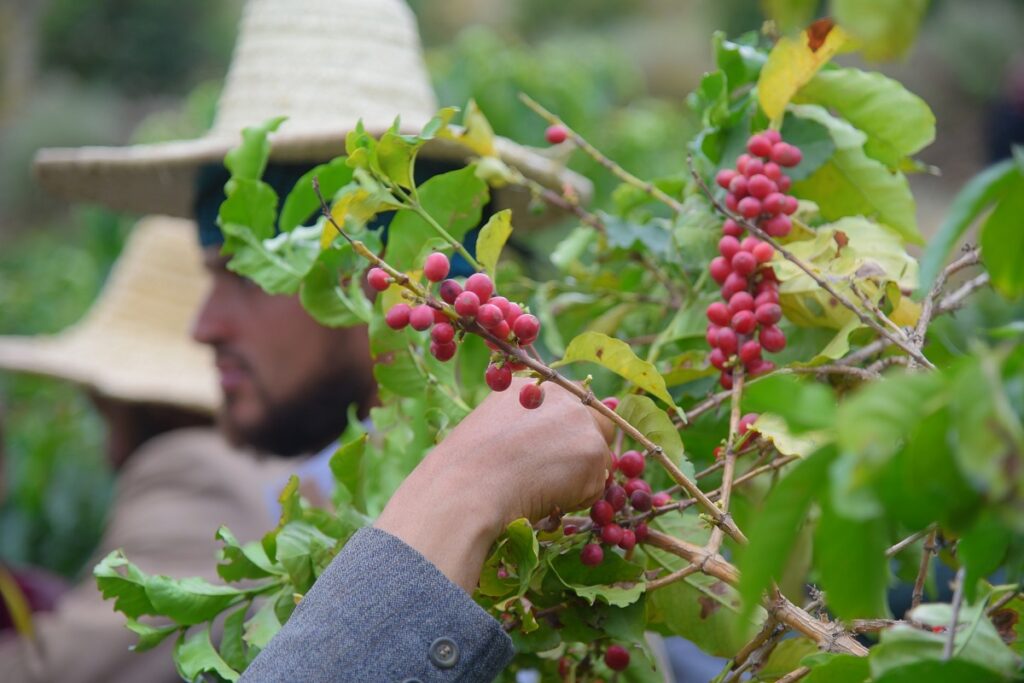
Challenges Faced by the Yemeni Coffee Sector
Regarding the challenges and restrictions that hinder the coffee sector in Yemen, the study displayed that the government’s neglect of the agriculture sector, particularly coffee cultivation, contributed to the slow growth of the coffee sector. This is mainly due to gaps in agricultural policies, and lack of protection legislations and regulatory institutional environment needed for the Yemeni coffee sector during the period (2014-2020).
The study also found that in recent decades, along with the increase in the government’s dependence on imports, and the change in consumption pattern of Yemeni society in rural and urban areas, local consumption of Yemeni coffee has decreased, as a result of increased consumption of tea and other imported drinks such as Nescafe, which reduced the local demand for coffee in Yemeni society. This requires a clear vision to boost local consumption of Yemeni coffee.
The study concluded a number of other challenges facing the Yemeni coffee sector, including the weak production growth of local agricultural crops in general, and the coffee sector being weak in orderly securing inputs, posing a major challenge for coffee farmers and exporters, compounded by the lack of integration between the agricultural, industrial and commercial sectors. Additionally, the inadequate capacities and lack of qualification of coffee farmers, entrepreneurs and exporters in the coffee sector limit their access to the necessary financing for their industry, which hinder the development of the Yemeni coffee industry. As well as the deteriorated infrastructure of the Yemeni coffee sector, including limited production laboratories and storage spaces, weak value chains, and marketing, which hamper the export of high-quality coffee and according to international standards.
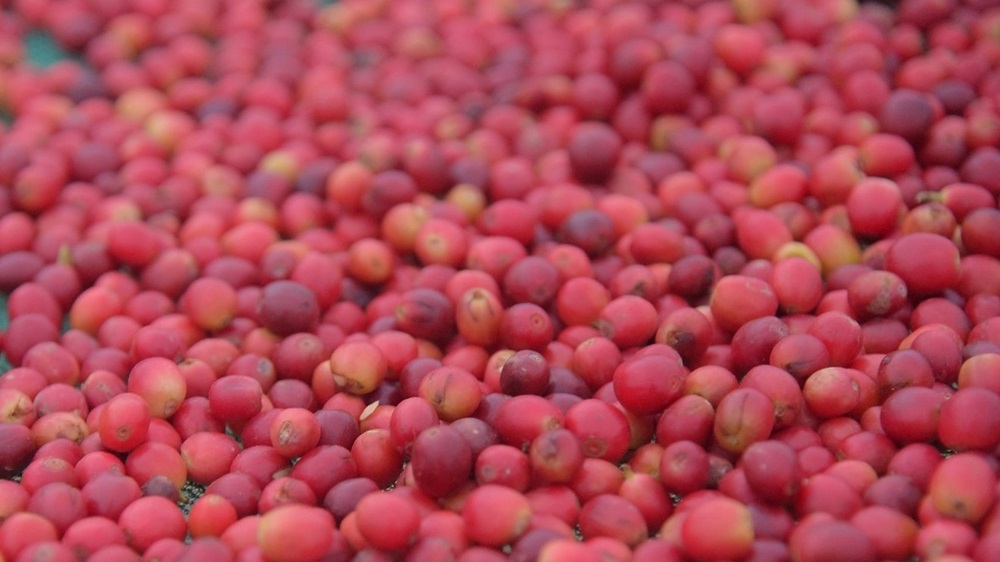
Policies and Recommendations
The study proposed a set of policies that the Yemeni government and its relevant institutions should consider to promote and develop the coffee sector in light of impending climate changes affecting coffee production in the world. Among these policies, the study recommended that the Yemeni government enact legislations that prevent the conversion of coffee-growing land in Yemen to the production of qat or other crops in order to preserve the coffee land, in addition to developing a strategic plan for the restoration and development of research farmlands in the governorates and reactivate their activities. The government should also adopt effective policies and procedures to protect Yemeni coffee germplasm as an important component of biodiversity.
The study also recommended that the Yemeni government should facilitate the role of microfinance banks and institutions, in order to expand the options of financing programs in agricultural communities. Along with enhancing and facilitating the role of the private sector in investing in the Yemeni coffee sector. Besides, the study also highlighted the need to restore the basic role of the Agricultural Cooperative Credit Bank, established in 1982, for financing and supporting farmers, fishermen and livestock breeders, as it is the government bank specialized in developing the agricultural and fisheries sector in Yemen.
The recommendations also suggested that the government launch a national program for the maintenance and rehabilitation of deteriorated agricultural terraces that grow coffee, carry out a census and inventory of them, activate agricultural extension policies, and boost the production of coffee nurseries, and restart nurseries destroyed by the war.
The study recommended donors and international bodies to support and expand cash-for-work programs in the agri-food fields in rural Yemen, in order to contribute to increasing productivity in the coffee sector in a sustainable manner and improving the income of small farmers’ families. The study also recommended that international organizations allocate part of climate finance to support programs and projects of microfinance institutions in Yemen, which provide non-profit financing to build the capacity of coffee farmers and develop the institutional infrastructure of Yemeni coffee producers and exporters.
About Holm Akhdar for Environmental Studies & Consultancy:
Holm Akhdar for Environmental Studies & Consultancy is an environmental research and consulting firm, based in Interim Capital, Aden, and registered in the Ministry of Industry and Trade in the Republic of Yemen with a commercial registry No (22971). It seeks to make a positive impact in the field of environmental and climate policies. And enhancing environmental awareness and knowledge by working with various business organizations and local communities, with the aim of establishing a common understanding of environmental and climate challenges in Yemen.

